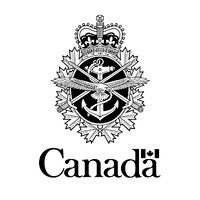Naval Communicator
Canadian Armed Forces | Forces armées canadiennes
Date: 12 hours ago
City: Montreal, QC
Contract type: Full time

Overview
As a member of the military, Naval Communicators establish and manage all external voice, radio-teletype and data circuits, and provide real-time tactical information in support of operations.
Naval Communicators establish and maintain communications with national and allied networks over radio frequencies required for mission coordination, using tactical line-of-sight, long-range and satellite communications. It is also their responsibility to advise Command on tactical signaling and ship maneuvering, encoding/decoding of signals and dissemination of tactical and maneuvering signals. Their primary duties include:
While on board ships, Naval Communicators experience the unique adventures and challenges that come with work at sea, such as rough waters and shift-work. They work primarily in the Communications Control Room, Operations Room, on the bridge and the flag deck.
As with all sea-going personnel, Naval Communicators work with their fellow shipmates in out-of-occupation duties such as watchkeeper or sentry, act as a line handler for replenishment at sea, and as a ship-hand for entering and leaving harbour. They participate in Search and Rescue events and man-overboard emergencies, act as a member of the ship’s emergency response team for security watches, and routinely perform ship maintenance and repairs. If necessary, a Naval Communicator may serve as a member of the Naval Boarding Party in order to inspect the cargo of suspect vessels and detain the vessel’s crew during inspections.
When employed ashore, Naval Communicators work in office-like conditions in a high-security environment, typically a restricted-access communications facility. They may work in a wider variety of duties such as providing communications support to ships and shore establishments, performing duties to assist in the communications flow in Naval Radio Stations, or employed as instructors in Recruit, Leadership or Communication Schools.
If you chose a career in the Regular Force, upon completion of all required training, you will be assigned to your first base. While there is some flexibility with regards to postings (relocations), accommodations can’t always be made, and therefore, you can likely expect to move at some point in your career. However, if you decide to join the Primary Reserve Force, you will do so through a specific Reserve unit. Outside of training, your chosen Reserve unit will be your workplace on a part time basis, and you will not be obligated to relocate to a different base. As part of the Primary Reserve Force, you typically work one night per week and some weekends as a minimum with possibilities of full-time employment.
Entry plans
The minimum required education to apply for this position is the completion of the provincial requirements for Gr 10 high school, Secondary 4 in Quebec or equivalent secondary school education.
Foreign education may be accepted.
Training
The first training that a recruit receives in the military is the 9 week Basic Military Qualification course, or “Basic Training,” held at the Canadian Forces Leadership and Recruit School in Saint-Jean-sur-Richelieu, Quebec. Recruits are taught the core skills and knowledge needed to succeed in a military environment. Courses emphasize basic military skills, weapons handling, first aid and ethical values. A large part of the course is spent on fitness training.
Naval Communicators attend the Canadian Forces Fleet School in Esquimalt, British Columbia or Halifax, Nova Scotia, for approximately 29 weeks. Training includes:
This position is available for part-time employment with the Primary Reserve at certain locations across Canada. Reserve Force members usually serve part time at a Reserve Division in their community, and may serve while going to school or working at a civilian job. They are paid during their training. They are not posted or required to do a military move. However, they can volunteer to move to another base. They may also volunteer for deployment on a military mission within or outside Canada.
Naval Communicators serve with the Royal Canadian Navy both full and part time at sea in ships, ashore in Naval Reserve Divisions, at Fleet Schools and Training Establishments both as students and instructors. Spread among 24 Naval Reserve Divisions and the Atlantic and Pacific Fleets, Naval Communicators have a presence in every major city in Canada. On the job, they work in a dynamic and fast paced environment managing the communications that enter and leave the ship. Trusted with sensitive and classified information, Naval Communicators are experts in procedural security. They exercise their expertise with computers, part of local and wide area networks, radio-teletype and voice circuits. Naval Communicators are also the tactical signaling experts in the Royal Canadian Navy. Throughout their development, Naval Communicators are exposed to, interact with and advise Command on this expertise.
Find a Recruiting Centre
Naval Communicators in the Reserve Force train alongside their Regular Force counterparts to what could be compared to the journeyman level of competence. Training is modularized and delivered on a schedule that is conducive to limited periods of availability. All training is paid whether it is done at home, at the local Naval Reserve Division, or in other locations across the country such as Victoria, Québec and Halifax. Naval Communicators undergo the Basic Military Qualification (Basic Training), usually the first summer after joining a Naval Reserve Division. During that same summer, they undergo environmental training as well. This training exposes the student to life at sea aboard a ship and includes things like Naval Firefighting, Damage Control, and shipboard ceremonies to name a few. From there, the student begins Naval Communicator training by Web-based and distance learning followed by a residential phase of 29 weeks the following summer in Victoria, British Columbia.
Reserve Force members usually serve part-time with their home unit for scheduled evenings and weekends, although they may also serve in full-time positions at some units for fixed terms, depending on the type of work that they do. They are paid 92.8% of Regular Force rates of pay, receive a reasonable benefits package and may qualify to contribute to a pension plan.
Related Careers
Naval Electronic Sensor Operator
Accelerated Pay Increment
In Demand
Naval Combat Information Operator
Accelerated Pay Increment
In Demand
Sonar Operator
Accelerated Pay Increment
As a member of the military, Naval Communicators establish and manage all external voice, radio-teletype and data circuits, and provide real-time tactical information in support of operations.
Naval Communicators establish and maintain communications with national and allied networks over radio frequencies required for mission coordination, using tactical line-of-sight, long-range and satellite communications. It is also their responsibility to advise Command on tactical signaling and ship maneuvering, encoding/decoding of signals and dissemination of tactical and maneuvering signals. Their primary duties include:
- Radio-teletype
- Computer networking
- Satellite, tactical voice and visual communications
- Classified and unclassified computer networks
- Computer-based message processing network
- Radio communication control systems
- Cryptographic and satellite equipment in support of high speed data and imagery exchanges
While on board ships, Naval Communicators experience the unique adventures and challenges that come with work at sea, such as rough waters and shift-work. They work primarily in the Communications Control Room, Operations Room, on the bridge and the flag deck.
As with all sea-going personnel, Naval Communicators work with their fellow shipmates in out-of-occupation duties such as watchkeeper or sentry, act as a line handler for replenishment at sea, and as a ship-hand for entering and leaving harbour. They participate in Search and Rescue events and man-overboard emergencies, act as a member of the ship’s emergency response team for security watches, and routinely perform ship maintenance and repairs. If necessary, a Naval Communicator may serve as a member of the Naval Boarding Party in order to inspect the cargo of suspect vessels and detain the vessel’s crew during inspections.
When employed ashore, Naval Communicators work in office-like conditions in a high-security environment, typically a restricted-access communications facility. They may work in a wider variety of duties such as providing communications support to ships and shore establishments, performing duties to assist in the communications flow in Naval Radio Stations, or employed as instructors in Recruit, Leadership or Communication Schools.
If you chose a career in the Regular Force, upon completion of all required training, you will be assigned to your first base. While there is some flexibility with regards to postings (relocations), accommodations can’t always be made, and therefore, you can likely expect to move at some point in your career. However, if you decide to join the Primary Reserve Force, you will do so through a specific Reserve unit. Outside of training, your chosen Reserve unit will be your workplace on a part time basis, and you will not be obligated to relocate to a different base. As part of the Primary Reserve Force, you typically work one night per week and some weekends as a minimum with possibilities of full-time employment.
Entry plans
- Direct Entry Options
The minimum required education to apply for this position is the completion of the provincial requirements for Gr 10 high school, Secondary 4 in Quebec or equivalent secondary school education.
Foreign education may be accepted.
Training
The first training that a recruit receives in the military is the 9 week Basic Military Qualification course, or “Basic Training,” held at the Canadian Forces Leadership and Recruit School in Saint-Jean-sur-Richelieu, Quebec. Recruits are taught the core skills and knowledge needed to succeed in a military environment. Courses emphasize basic military skills, weapons handling, first aid and ethical values. A large part of the course is spent on fitness training.
Naval Communicators attend the Canadian Forces Fleet School in Esquimalt, British Columbia or Halifax, Nova Scotia, for approximately 29 weeks. Training includes:
- Communications security
- Information Systems Security
- Basic communication procedures, such as:
- Basic radio theory and computer skills
- A Plus and Network Plus Curriculum
- Keyboarding and Message processing
- Frequency Management
- Operating Radio Communication Equipment
- Fleet Maneuvering
- Naval Boarding party
- Basic Submarine Qualification
- Ship’s team diver
- Instructional techniques
- Computer operation
- Local area network administrator
- Advanced cryptography
- Communications policy directive planning and implementation
- Tactical communication plan preparation and execution
- Communications security
- Information systems security
- Frequency management
- Advanced fleet tactical manoeuvring
- Leadership and management courses
- Perform General Duties in the Naval Environment
- Perform as a Member of the Force Protection Team
- Perform as a Member of the Damage Control Organization
- Carry Out Survival Drills
This position is available for part-time employment with the Primary Reserve at certain locations across Canada. Reserve Force members usually serve part time at a Reserve Division in their community, and may serve while going to school or working at a civilian job. They are paid during their training. They are not posted or required to do a military move. However, they can volunteer to move to another base. They may also volunteer for deployment on a military mission within or outside Canada.
Naval Communicators serve with the Royal Canadian Navy both full and part time at sea in ships, ashore in Naval Reserve Divisions, at Fleet Schools and Training Establishments both as students and instructors. Spread among 24 Naval Reserve Divisions and the Atlantic and Pacific Fleets, Naval Communicators have a presence in every major city in Canada. On the job, they work in a dynamic and fast paced environment managing the communications that enter and leave the ship. Trusted with sensitive and classified information, Naval Communicators are experts in procedural security. They exercise their expertise with computers, part of local and wide area networks, radio-teletype and voice circuits. Naval Communicators are also the tactical signaling experts in the Royal Canadian Navy. Throughout their development, Naval Communicators are exposed to, interact with and advise Command on this expertise.
Find a Recruiting Centre
Naval Communicators in the Reserve Force train alongside their Regular Force counterparts to what could be compared to the journeyman level of competence. Training is modularized and delivered on a schedule that is conducive to limited periods of availability. All training is paid whether it is done at home, at the local Naval Reserve Division, or in other locations across the country such as Victoria, Québec and Halifax. Naval Communicators undergo the Basic Military Qualification (Basic Training), usually the first summer after joining a Naval Reserve Division. During that same summer, they undergo environmental training as well. This training exposes the student to life at sea aboard a ship and includes things like Naval Firefighting, Damage Control, and shipboard ceremonies to name a few. From there, the student begins Naval Communicator training by Web-based and distance learning followed by a residential phase of 29 weeks the following summer in Victoria, British Columbia.
Reserve Force members usually serve part-time with their home unit for scheduled evenings and weekends, although they may also serve in full-time positions at some units for fixed terms, depending on the type of work that they do. They are paid 92.8% of Regular Force rates of pay, receive a reasonable benefits package and may qualify to contribute to a pension plan.
Related Careers
Naval Electronic Sensor Operator
Accelerated Pay Increment
In Demand
Naval Combat Information Operator
Accelerated Pay Increment
In Demand
Sonar Operator
Accelerated Pay Increment
How to apply
To apply for this job you need to authorize on our website. If you don't have an account yet, please register.
Post a resumeSimilar jobs
Analyste
Laurentian Bank,
Montreal, QC
5 days ago
Voir au-delà des chiffres MCÀ la Banque Laurentienne, nous croyons que nous pouvons changer l’expérience bancaire pour le mieux. Fondée à Montréal en 1846, la Banque Laurentienne aide les familles, les entreprises et les collectivités à prospérer. Aujourd’hui, nous comptons plus que 2 800 employés qui travaillent ensemble, comme Une Équipe, pour offrir une vaste gamme de services financiers et...

SWM Receptionist, ScotiaMcleod, Montreal, QC
Scotiabank,
Montreal, QC
6 days ago
Numéro de la demande: 222985ScotiaMcLeod, l’un des piliers de Gestion de patrimoine ScotiaMD, a acquis sa réputation d’intégrité grâce à son excellent service et à ses conseils avisés en matière de placement. Nos conseillers et nos équipes se targuent d’explorer des approches innovantes pour protéger et faire fructifier les actifs de leurs clients.En vous joignant à ScotiaMcLeod, vous adopterez l’approche...

Customer Experience Associate - LaSalle - 18.75h
TD,
Montreal, QC
6 days ago
Work Location:Montréal, Quebec, CanadaHours:18.75Line Of Business:Personal & Commercial BankingPay Details:22,50 $/$22.50 - 28,33 $/$28.33 CADTD is committed to providing fair and equitable compensation opportunities to all colleagues. Growth opportunities and skill development are defining features of the colleague experience at TD. Our compensation policies and practices have been designed to allow colleagues to progress through the salary range over time...
